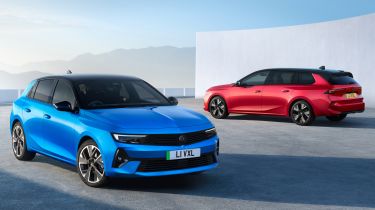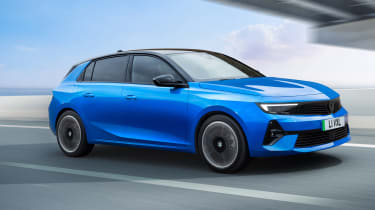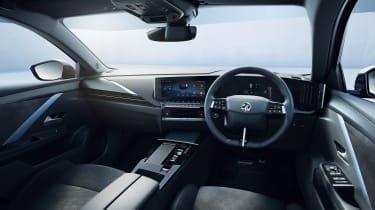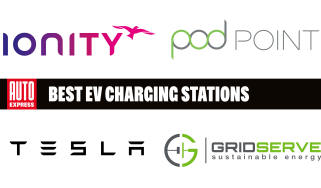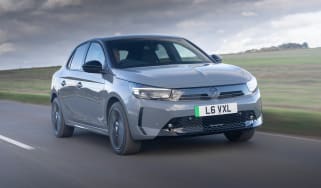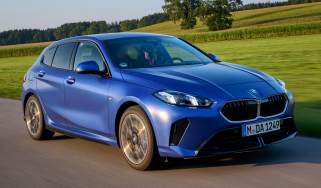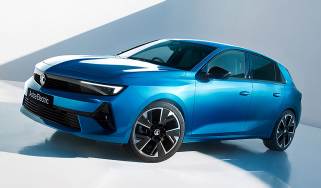New 2023 Vauxhall Astra Electric to start from £39,995
All-electric version of Vauxhall’s family hatchback offers a range of up to 258 miles
The Vauxhall Astra is the latest model in the British brand’s line up to get the zero emissions treatment. The rather unimaginatively named Vauxhall Astra Electric will be available as a five-door hatchback and Sports Tourer estate – just like the current, eighth-generation Astra – and will start from £39,995.
Instead of relying on the e-CMP architecture used by the Corsa Electric and several other electric cars from the Stellantis family, the Astra Electric uses the latest EMP2 platform and features the same running gear as its sister car, the Peugeot e-308. This means there’s a 54kWh battery pack, powering a front-mounted motor delivering 152bhp and 270Nm of torque. According to Vauxhall, this combo is good for 258 miles in the Astra Electric.
Compared to the Astra Electric’s most direct rivals – the Renault Megane E-Tech, Kia Niro EV, Cupra Born and recently facelifted Volkswagen ID.3 – the Vauxhall doesn’t excel in the range department. Both the Megane E-Tech and Niro EV will cover around 280 miles on a single charge, while Cupra and Volkswagen’s electric hatchbacks can go up to 340 miles between top ups.
Speaking of which, Vauxhall has confirmed the Astra Electric will charge at up to 100kW from a suitably fast DC rapid charger, allowing for a 20 to 80 per cent top-up in 26 minutes. Vauxhall has also confirmed that, from launch, all Astra Electric models will be fitted with a three-phase 11kW on-board AC charger, though a full recharge from a typical 7kW home wallbox will take eight hours.
The Astra Electric’s 0-62mph time will take 9.2 seconds, a little behind rivals such as the Renault Megane E-Tech and MG4 which both do the deed in under 8 seconds, and the top speed stands at 106mph.
Inside, every Astra Electric will feature the Pure Panel Pro infotainment set-up, consisting of two 10-inch screens. It also receives ‘Hey Vauxhall’ voice control and ergonomic sports seats certified by the German campaign for healthier backs (AGR), but unlike the regular model also comes fitted with acoustic glass and additional door and boot seals designed to reduce interior noise.
Top-spec models also come with Intelli-Drive 2.0, the latest version of Vauxhall’s driver assistance system which incorporates semi-autonomous lane-changing, advanced speed adaptation and long-range blind spot detection.
Vauxhall claims that, with the battery in the Astra’s underbody, there’s no loss of boot space over the Astra PHEV. So the electric hatch has a 351-litre boot with the rear seats in place, and the Sports Tourer offers 516 litres.
While the five-door Astra Electric will face competition from many EVs – including its Peugeot e-308 sibling, the aforementioned Volkswagen ID.3 and Renault Megane E-Tech, plus the more budget-friendly MG4 EV – the Astra Sports Tourer Electric will only have the newly updated MG5 EV and the Peugeot e-308 SW to compete against.
Order books for the Astra Electric hatch open this month with customer deliveries to begin in the summer. Buyers will be offered a choice of two trim levels: GS and Ultimate, both featuring LED headlights, ambient interior lighting, those dual 10-inch displays, wireless Apple CarPlay and Android Auto, front and rear parking sensors, a 360-degree parking camera set-up, keyless entry and start, plus the usual suite of driver assistance and safety systems including traffic sign recognition and driver drowsiness monitoring.
Ultimate trim ups the hatchback’s price from £39,995 to £43,100, and adds IntelliLux Pixel Matrix headlights, a wireless charging pad, panoramic sunroof, head-up display, Alcantara upholstery, Vauxhall’s Intelli-Air air filtration system and Intelli-Drive 2.0.
The Astra Sports Tourer Electric will be available in the same GS and Ultimate specs when it goes on sale sometime later this year. Pricing has yet to be announced, but we expect it’ll attract a £1,000-£2,000 premium over the equivalent hatchback.
The Astra Electric twins are a key part of Vauxhall plans on becoming an all-electric car manufacturer by 2028. The British brand is also planning to bring back the Vauxhall Insignia as an high-riding, sleekly profiled electric crossover, while the famous Manta moniker is expected to be worn by a sporty SUV to rival the likes of the Kia EV6.
Now check out our full in-depth review of the new Vauxhall Astra…

